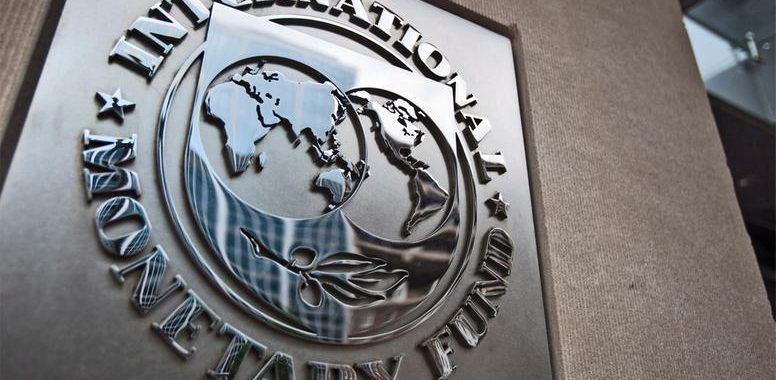Business
Nigeria Set to Clear IMF Loan by 2029May 2, 2025

Nigeria is on course to complete repayment of its International Monetary Fund (IMF) Rapid Financing Instrument (RFI) loan by 2029, based on the latest repayment schedule published by the IMF.
The country received emergency support amounting to 2,454.50 million Special Drawing Rights (SDRs), roughly equivalent to $3.32 billion at the current exchange rate of SDR1 to $1.35404 as of May 1, 2025.
Read Also:
- CBN Governor Strengthens Nigeria-Saudi Arabia Economic Cooperation
- Nigeria’s Domestic Dollar Bond Issue Wins West Africa Deal Of The Year Award
The full loan was disbursed on April 30, 2020, to help cushion the economic shock caused by the COVID-19 pandemic, which had led to a steep decline in oil revenues, an economic recession, and fiscal strain.
According to the repayment terms, Nigeria’s outstanding obligations are spread over five years, starting in 2025 and ending in 2029.
In 2025, the country is expected to pay a final principal sum of SDR 306.81 million, along with SDR 22.81 million in charges and interest—amounting to SDR 329.62 million, or approximately $446.21 million.
From 2026 through 2029, repayments will mostly involve charges and interest payments, estimated at SDR 26.7 million per year—about $36.14 million annually at the current rate.
Overall, the total repayments due over the next five years amount to SDR 436.42 million, which translates to around $590.78 million in dollar terms.
In 2024, Nigeria paid $1.63 billion to the IMF—entirely for principal—while total external debt servicing reached $4.66 billion, an increase from $3.5 billion in 2023. Multilateral lenders received the largest share, totaling $2.62 billion or 56 percent of the overall amount.
The IMF accounted for 35 percent of Nigeria’s external debt service in 2024 and approximately 62 percent of payments to multilateral creditors. Nigeria’s total debt to the IMF dropped significantly from $2.47 billion in 2023 to $800.23 million in 2024—a 67.6 percent reduction, likely due to repayments made under the emergency loan.
The RFI loan was notable for its swift approval and limited conditions, differing from traditional IMF programs that often require comprehensive reform agendas. Despite the easier terms, the repayment schedule remains fixed and binding.
Progress in meeting these obligations without seeking debt relief or restructuring is viewed positively by international investors and financial institutions.
Since receiving the loan, Nigeria’s economy has undergone significant reforms under President Bola Tinubu’s administration, including the unification of exchange rates, removal of petrol subsidies, and tax system overhauls aimed at boosting government revenues.
These reforms are designed to strengthen fiscal resilience, promote economic stability, and attract foreign investment.
Macroeconomic indicators suggest cautious optimism. The World Bank forecasts a 3.6 percent GDP growth for Nigeria in 2025, slightly above the IMF’s projection of 3.0 percent. Inflation has moderated to 24.23 percent in March 2025, and foreign reserves are improving due to better oil exports and steady remittance inflows.
The current account balance is expected to shift to a surplus by 2026. Nigeria currently has no outstanding financial obligations with the IMF, which recently acknowledged the country’s progress but emphasized the need for continued reforms.
Successfully completing the repayment plan would enhance Nigeria’s credit profile, increase access to global capital markets, and improve investor perception. However, risks such as oil price volatility, fiscal slippages, and security challenges remain.
With sound policy execution and external support, Nigeria appears poised to meet its debt obligations by 2029—concluding a significant phase in the country’s post-pandemic economic recovery.
Backstory:
Recall that in 2020, Nigeria faced a severe economic crisis due to the COVID-19 pandemic and falling oil prices. To stabilize the economy, Nigeria secured a $3.32 billion loan from the IMF under the Rapid Financing Instrument (RFI), which was quickly approved with minimal conditions.
The loan was aimed at addressing fiscal pressures and supporting healthcare during the pandemic. It was fully disbursed in April 2020, with repayment set to begin in 2025 and end in 2029.
By 2024, Nigeria had made significant progress in repaying the loan, reducing its debt to the IMF by 67.6%. The country also launched key reforms, such as unifying exchange rates and removing petrol subsidies.
With a more stable economy and projected growth, Nigeria is on track to fully repay the IMF loan by 2029, enhancing its credit profile and boosting investor confidence.



